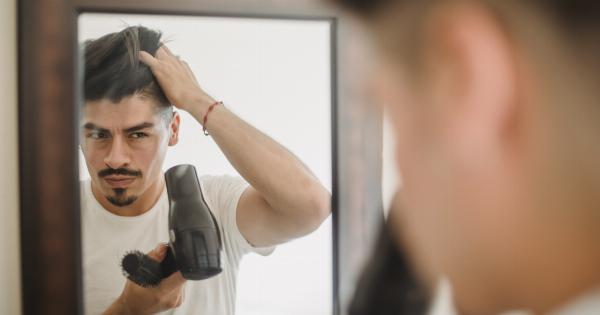Healthy hair is an essential part of a person’s appearance and plays a significant role in boosting confidence. However, hair loss has become a common concern for many individuals.
Losing hair can be a distressing experience, and understanding the underlying causes can help in identifying the best treatment or prevention options. Here are the top reasons for hair loss that you should know-.
1. Genetic Factors
Hair loss can be an inherited trait that affects both men and women. Androgenetic alopecia, commonly known as male or female pattern baldness, occurs due to a genetic predisposition.
According to the American Academy of Dermatology, hereditary hair loss affects about 80 million men and women in the United States. The condition causes hair to thin and fall out gradually over time, starting at the temples or the crown of the head.
2. Hormonal Imbalances
Hormonal changes can result in hair loss, and it is more prevalent among women. Changes in hormones can occur during pregnancy, childbirth, menopause, and thyroid disorders.
Androgen, a hormone responsible for hair growth, can affect hair follicles’ size, leading to hair loss in women. Men with high levels of dihydrotestosterone (DHT) can also experience hair loss as it binds to hair follicles, causing them to shrink and eventually stop producing new hair.
3. Medical Conditions
Several medical conditions can result in hair loss. Alopecia areata is a condition that affects the immune system, leading to patchy hair loss on the scalp and other areas of the body. Scalp infections, such as ringworm, can also cause hair loss.
Other medical conditions that can result in hair loss include lupus, polycystic ovary syndrome (PCOS), and cancer treatments such as chemotherapy.
4. Nutritional Deficiencies
Getting enough nutrients is essential for hair growth, and a lack of them can result in hair loss.
Iron deficiency anemia is a common cause of hair loss, and other nutritional deficiencies such as zinc, vitamin D, and biotin can also contribute to hair loss. A balanced diet with sufficient nutrients and supplements can help prevent hair loss due to nutritional deficiencies.
5. Stress
Physical and emotional stress can lead to hair loss. Stressful events such as surgery, illness, or the death of a loved one can trigger a type of hair loss known as telogen effluvium.
In this condition, hair follicles enter a resting phase, and hair falls out more than usual. Managing stress with relaxation techniques like yoga, meditation, or therapy can help reduce hair loss.
6. Hairstyles and Treatments
Hairstyles that pull the hair tightly, such as braids, weaves, or ponytails, can cause hair loss over time. Chemical treatments such as coloring or perming can also contribute to hair loss by damaging hair follicles.
To prevent hair loss due to hairstyling and treatments, avoid pulling hair too tightly, limit the use of chemicals, and regularly trim split ends.
7. Medications
Some medications can cause hair loss as a side effect. Medications used to treat conditions such as arthritis, depression, high blood pressure, and cancer can result in hair loss.
If you are experiencing hair loss due to medication, consult your doctor to discuss alternative options or treatments.
8. Aging
As we age, the rate of hair growth slows down, and follicles shrink, leading to hair loss. Menopause can also contribute to hair loss in women, as the reduction of estrogen levels affects hair growth.
While aging-related hair loss is inevitable, a healthy lifestyle and regular hair care can slow down the process.
9. Poor Hair Care
Poor hair care habits, such as excessive heat styling, brushing wet hair, and using harsh chemicals, can damage hair follicles and result in hair loss.
To prevent hair loss due to poor hair care, avoid using excessive heat on hair, use a wide-toothed comb to detangle hair, and use hair care products suitable for your hair type.
10. Environmental Factors
Environmental factors such as pollution, UV radiation, and climate changes can also contribute to hair loss. Exposure to harsh environmental conditions can damage hair and cause it to fall out.
Protecting hair from environmental factors by wearing protective headgear, using leave-in conditioners, and avoiding overexposure to the sun can prevent hair loss.
Conclusion
Knowing the top reasons for hair loss can help you take steps to prevent or manage it. While hair loss can be a distressing experience, fortunately, most causes of hair loss are treatable.
Eating a balanced diet, practicing good hair care habits, reducing stress, and seeking medical help if needed can help maintain healthy hair.

























